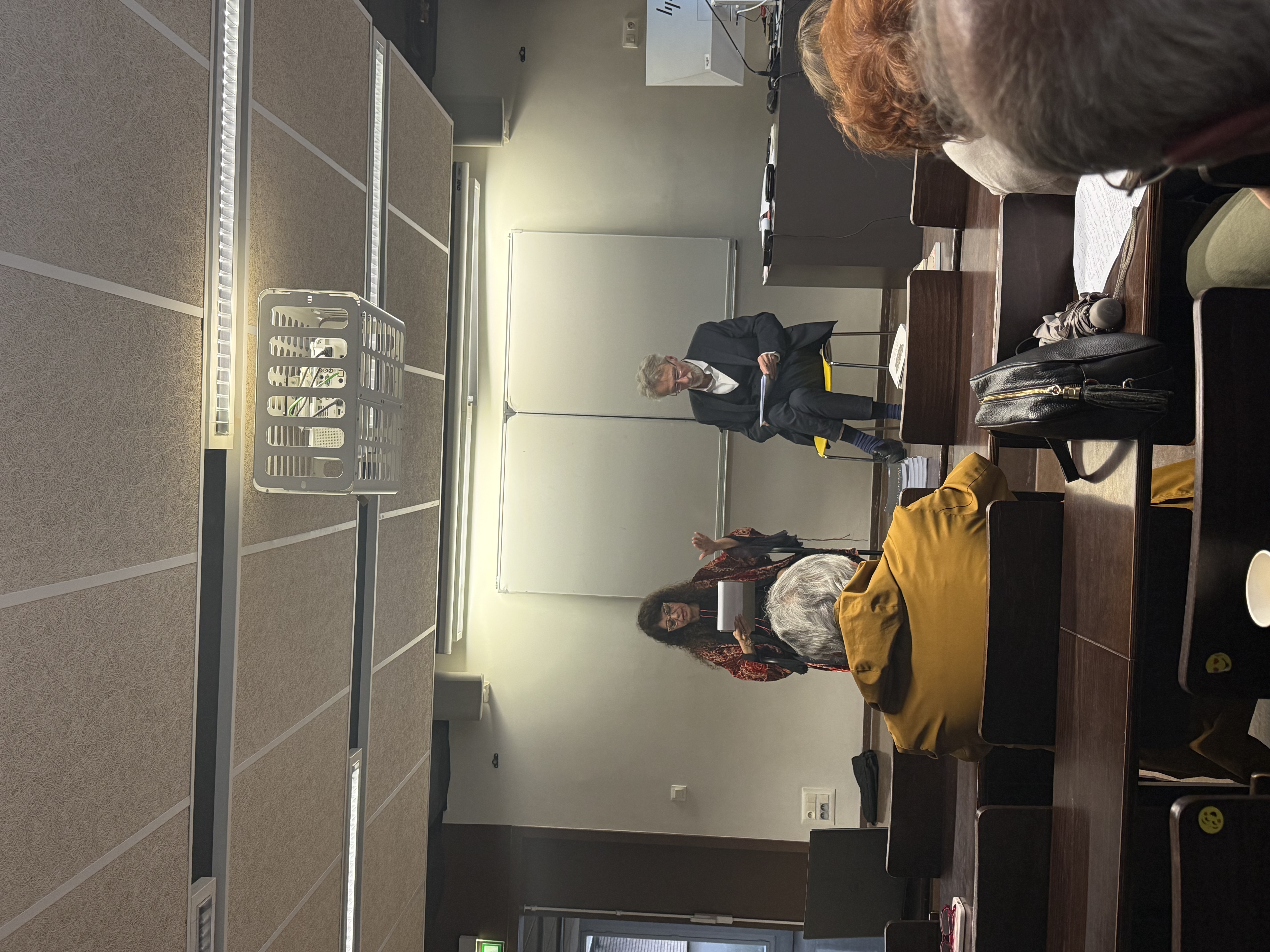News
2025-05-25 18:30:56
Visit to the National Institute of Oriental Languages and Civilisations (Inalco)

On 21 May, we visited the National Institute of Oriental Languages and Civilisations (Inalco) in Paris. Inalco is the only public higher education and research institution in the world to offer such an extensive and diverse range of programmes in languages and civilisations. Its reputation for excellence is well recognised both in France and internationally. From undergraduate to doctoral level, Inalco provides instruction in over 100 languages and civilisations, along with a variety of professionally oriented courses.
During our visit, we had the opportunity to meet Dr Anahit Donabedian, Head of the Department of Armenian Studies at Inalco. Our discussion focused on the department’s academic and research activities in the field of Armenian studies.
We also took part in a literary event dedicated to the works of Argentine-Armenian writer Ana Arzoumanian. The discussion was moderated by the author herself and Gérard Malkassian, lecturer at Inalco, as part of a broader series of events centred on Armenian studies.
Ana Arzoumanian, born in Buenos Aires in 1962 to an Armenian family, is a noted Argentine poet and essayist. The meeting focused on her works Jeanne la Folle and Vodka aux mûres, which reflect two central themes in her writing: firstly, the dominance of patriarchal structures and the challenges faced by women in accessing the public domain of speech and thought; and secondly, the inherited trauma of genocides and mass atrocities, viewed through the lens of her personal history as a descendant of survivors of the 1915 Armenian Genocide.
The event was structured as an open discussion, featuring readings from Arzoumanian’s works and a broader conversation on the role of the Armenian community, writers, and artists in Argentina’s cultural landscape. The dialogue also explored their relationship with Armenian identity, and their outlook amidst the country’s ongoing political, economic, and social challenges.
Some of the key questions raised during the discussion included:
– What constitutes national literature? What defines Armenian literature: is it literature written in Armenian, by Armenian writers, or about Armenian subjects?
– How do we speak about war? How do we remember it? Can war be forgotten?
– Can silence communicate violence? Can we break the cycle of violence through words—or through silence?
We extend our sincere thanks to Dr Anahit Donabedian for her warm welcome and for inviting us to this thought-provoking event.
Back